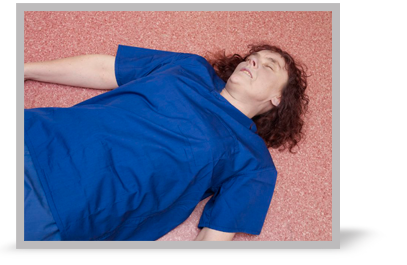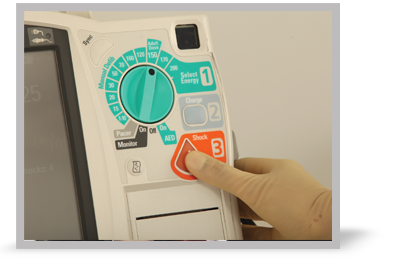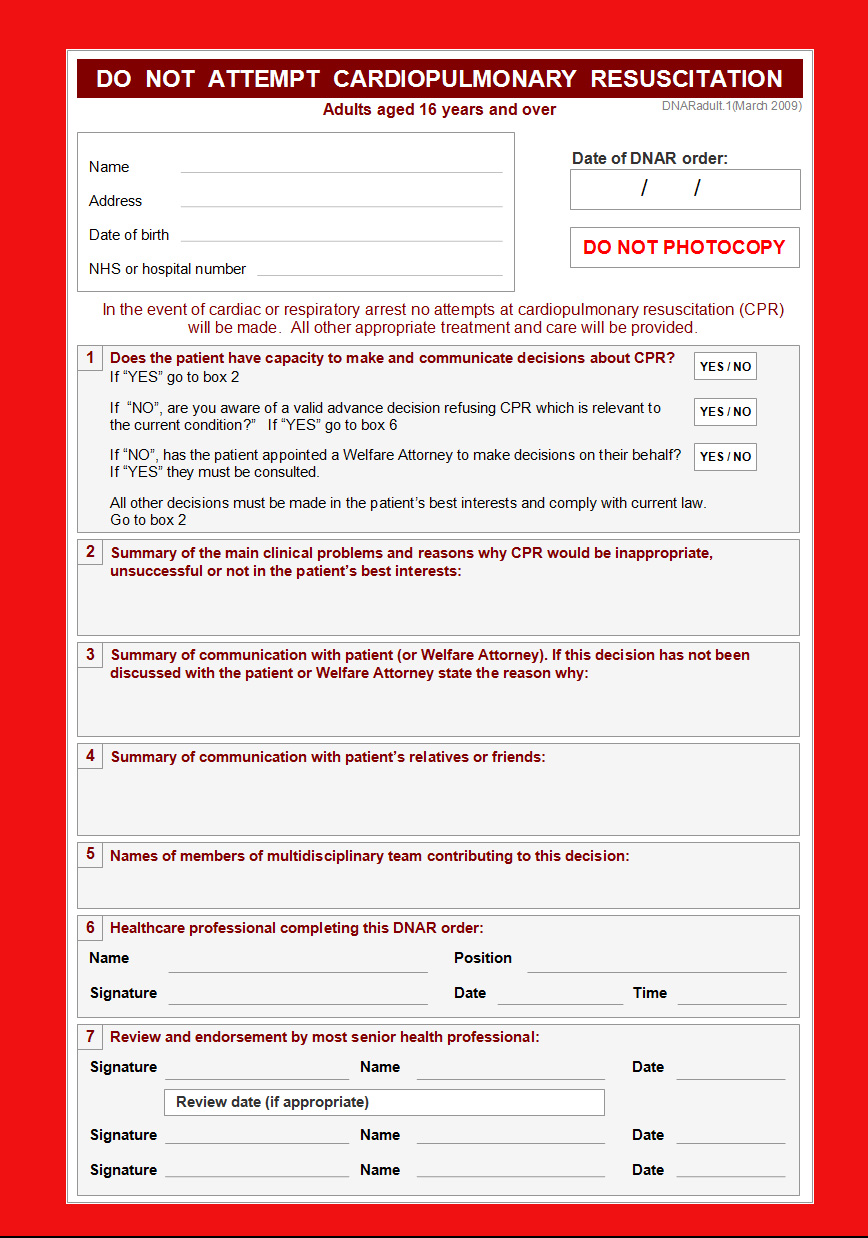
- Case study 1
You will now consider three case studies relating to DNAR decisions. Answers are not always clear cut, so think about which factors would influence resuscitation decisions.

Case Study: Advance Decision to Refuse Treatment
A colleague states that she does not want to be resuscitated if she ever has a cardiac arrest. The next week she sustains a cardiac arrest in front of you.
Do you start resuscitation?
A colleague states that she does not want to be resuscitated if she ever has a cardiac arrest. The next week she sustains a cardiac arrest in front of you.
Do you start resuscitation?

Yes, you should start resuscitation.
A comment of this nature may have been made out of context, or without thought for the full implications.
In the absence of an ‘Advanced Directive’ or a documented and valid DNAR order, resuscitation should always be commenced under such circumstances.
A comment of this nature may have been made out of context, or without thought for the full implications.
In the absence of an ‘Advanced Directive’ or a documented and valid DNAR order, resuscitation should always be commenced under such circumstances.

You find out that she was diagnosed last week with cancer and is taking anti-depressants.
Do you continue resuscitation?
Do you continue resuscitation?

Yes, you should continue resuscitation.
In the absence of a legally binding ‘Advanced Directive’ or DNAR order resuscitation should be continued.
We do not know the extent of the cancer in this case and how much treatment is available.
Anti-depressants imply a state of mind that may affect the patient’s capacity to make an informed decision.
In the absence of a legally binding ‘Advanced Directive’ or DNAR order resuscitation should be continued.
We do not know the extent of the cancer in this case and how much treatment is available.
Anti-depressants imply a state of mind that may affect the patient’s capacity to make an informed decision.

Her partner arrives and asks you to reverse your decision.
What do you do?
What do you do?

You should continue resuscitation, at least initially.
Whilst it is good practice to involve relatives in decisions, the legal decision to stop CPR in England and Wales cannot be made by a relative alone.
The decision to stop resuscitation should be made by the most senior clinician involved in the patient’s care, usually after discussion with the family and other healthcare staff who know the patient. The partner’s views would be taken into consideration, but the decision would be made with the patient’s best interests in mind.
The exception is when a patient has appointed a personal legal representative to make decisions on their behalf if the patient lacks mental capacity. If this is the case, the partner can verify his authority.
Whilst it is good practice to involve relatives in decisions, the legal decision to stop CPR in England and Wales cannot be made by a relative alone.
The decision to stop resuscitation should be made by the most senior clinician involved in the patient’s care, usually after discussion with the family and other healthcare staff who know the patient. The partner’s views would be taken into consideration, but the decision would be made with the patient’s best interests in mind.
The exception is when a patient has appointed a personal legal representative to make decisions on their behalf if the patient lacks mental capacity. If this is the case, the partner can verify his authority.
Select Next to continue.
References
- See chapter 16 of the ALS manual for further reading about decisions relating to resuscitation
- Joint statement about decisions relating to cardiopulmonary resuscitation published by the British Medical Association (BMA), the Resuscitation Council (UK) and the Royal College of Nursing (RCN) http://www.resus.org.uk/pages/dnar.htm


- The Resuscitation Council (UK) guidance on the legal status of those who attempt resuscitation http://www.resus.org.uk/pages/legal.htm


- The General Medical Council (GMC) guidance on treatment and care towards the end of life: good practice in decision making www.gmc-uk.org/guidance/ethical_guidance/end_of_life_care.asp


Essentials: Model DNAR forms
Follow this link to see the recommended standards for recording 'Do not attempt resuscitation' (DNAR) decisions and the model DNAR forms www.resus.org.uk/pages/dnarrstd.htm


Settings
Font colour
default inverted high contrast high contrast inverted high contrast soft green on blackSample text
text looks like thisTEXT LOOKS LIKE THIS
